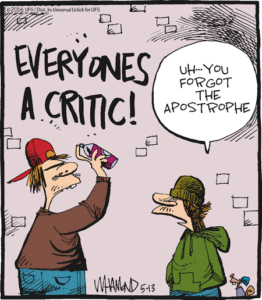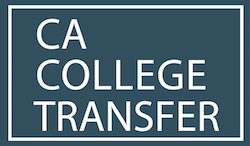10 Tips for Better UC Application Essays
Now that the rush of applications is over, I’ve compiled some of the small and easily correctable things that will make all the difference to a reader when looking over your application.
1. Keep it Simple
 I cannot stress this enough. Write your essay in a conversational tone. I often tell students to pretend they are telling their story to someone over a coffee or lunch. If you just won an award for a novel idea, or you just had a weird encounter, or you have an unusual hobby, how would you tell the person across from you? Would you drone on and on vaguely or would you punctuate it with exciting detail? I can tell you exactly what you’d do — you’d show the listener your enthusiasm, share the humor, emphasize your amazement. When you write your essay pretend you’re talking to someone over coffee.
I cannot stress this enough. Write your essay in a conversational tone. I often tell students to pretend they are telling their story to someone over a coffee or lunch. If you just won an award for a novel idea, or you just had a weird encounter, or you have an unusual hobby, how would you tell the person across from you? Would you drone on and on vaguely or would you punctuate it with exciting detail? I can tell you exactly what you’d do — you’d show the listener your enthusiasm, share the humor, emphasize your amazement. When you write your essay pretend you’re talking to someone over coffee.
2. Ditch the Thesaurus
 This latches onto the tail of #1. Do not try to impress the reader with an academic essay. These are application essays, not academic essays. Big difference. So you like Cognitive Science. Certainly explain your interest and your passion but don’t bog everything down trying to prove your vast knowledge by blabbing on and on about your theoretical or philosophical musings after taking this or that course. The admissions office isn’t interested. And also don’t toss in over-zealous words that you think make you sound intellectual, because it will usually backfire. Remember, the essay you slaved over is being read in two minutes or less. Don’t make the readers stop halfway through and reread because they lost your train of thought.
This latches onto the tail of #1. Do not try to impress the reader with an academic essay. These are application essays, not academic essays. Big difference. So you like Cognitive Science. Certainly explain your interest and your passion but don’t bog everything down trying to prove your vast knowledge by blabbing on and on about your theoretical or philosophical musings after taking this or that course. The admissions office isn’t interested. And also don’t toss in over-zealous words that you think make you sound intellectual, because it will usually backfire. Remember, the essay you slaved over is being read in two minutes or less. Don’t make the readers stop halfway through and reread because they lost your train of thought.
3. Use Short Sentences

Now when I say use short sentences I don’t mean making everything staccato, rat-tat-tat. But getting to the point has its benefits. I have noticed that young students often shy away from short sentences. I assume this is because they believe it connotes a deficiency in brain power. On the contrary, short sentences can be exceptionally powerful. Consider Ernest Hemingway. He was the master of short sentences. I often work with students to make their first sentence miniscule, a bold statement that catches the eye, intrigues the reader — and then the essay moves on from there.
4. Small is Better
 Moving from words to topic, sometimes it is the kernel within a larger event that makes for the perfect essay. Leaving out the academic subject and major prompts (which are fairly straight-forward), the other Personal Insight prompts open up a world of possibility. One thing the UC likes most is a small story to exemplify a trait. A tiny capsule that epitomizes your leadership capabilities, or highlights your skill, or an adversity you had to overcome. Some of the best essays are small. Consider these from a few of my clients: (1) The importance of a student’s beloved sneaker collection; (2) a barista giving a free coffee to a stressed customer and the unexpected result; (3) a student who once a month took a homeless man’s dog for a bath. You get the idea.
Moving from words to topic, sometimes it is the kernel within a larger event that makes for the perfect essay. Leaving out the academic subject and major prompts (which are fairly straight-forward), the other Personal Insight prompts open up a world of possibility. One thing the UC likes most is a small story to exemplify a trait. A tiny capsule that epitomizes your leadership capabilities, or highlights your skill, or an adversity you had to overcome. Some of the best essays are small. Consider these from a few of my clients: (1) The importance of a student’s beloved sneaker collection; (2) a barista giving a free coffee to a stressed customer and the unexpected result; (3) a student who once a month took a homeless man’s dog for a bath. You get the idea.
5. Everyone’s a Critic
 There’s an expression — too many cooks spoil the broth — and that goes double when farming out your essay for feedback. Yes, your uncle has his opinion and the guy down the street and your roommate and the student who got in last year, and trust me most will be sure to let you know you’re missing the point. This usually happens after the essay is in its final stages and then the nervous student shops it around and next think I know they want a new topic or have reworked it to smithereens. Certainly, there may be some great adds, but keep in mind, I know the points the UC wants to hear and some ideas are, dare I say it, doing more harm than good.
There’s an expression — too many cooks spoil the broth — and that goes double when farming out your essay for feedback. Yes, your uncle has his opinion and the guy down the street and your roommate and the student who got in last year, and trust me most will be sure to let you know you’re missing the point. This usually happens after the essay is in its final stages and then the nervous student shops it around and next think I know they want a new topic or have reworked it to smithereens. Certainly, there may be some great adds, but keep in mind, I know the points the UC wants to hear and some ideas are, dare I say it, doing more harm than good.
Even the occasional UC rep, whose job is not to read essays but to visit CCC campuses, can shake the apple cart. Just this last admissions’ cycle, all four essays were finished and were excellent. This was an outstanding student. She showed the essays to a rep who liked them all, except she though the first sentence in one essay needed to be improved. The student got all worked up and reached out to me with three alternatives. Now, I had no strong feeling about that first sentence; it was totally fine to me, but a killer open might emerge. However, the suggestions by the rep were the biggest cliches in the book and I cringed to read them. (See point #6.) It was awkward on my end because this was a UC rep, so I told the student she could choose any open she wished, but I still voted for the current one. I also told her no student ever got rejected because of a first sentence — except perhaps in the next situation.
6. Don’t Start in the Middle
 I blame this on the 65 Successful Harvard Business School Application Essays that came out in 2009 and which for a hot minute was the application essay bible. I even admit to following its tenets way back when. However, as George Harrison of the Beatles succinctly put it, all things must pass, and this style of essay open has become passé and dated. The premise is you start the essay in the middle of something, such as I stared at the computer in disbelief. My fingers trembled on the keypad. (This by the way, is what the UC rep suggested in point #4.)
I blame this on the 65 Successful Harvard Business School Application Essays that came out in 2009 and which for a hot minute was the application essay bible. I even admit to following its tenets way back when. However, as George Harrison of the Beatles succinctly put it, all things must pass, and this style of essay open has become passé and dated. The premise is you start the essay in the middle of something, such as I stared at the computer in disbelief. My fingers trembled on the keypad. (This by the way, is what the UC rep suggested in point #4.)
This style of open went from charming to annoying. In fact, the Dean of the Berkeley Law School wrote an article several years back saying any essay that came to him like that was tossed in the trash. (I’m assuming he was joking — maybe.) The point is this was a thing but is now no longer a thing.
7. The More You Nitpick the Worse it Gets
 This usually involves the student with slightly obsessive tendencies (not meant as judgment, I have obsessive tendencies coming out my eyeballs). In this case, the essay is never good enough. It’s never finished. There’s always a new tweak to be added. The end result – and this is always the end result: The essay loses its focus because the writer is tossing in everything but the kitchen sink. You need to know when to put the pen down and walk away.
This usually involves the student with slightly obsessive tendencies (not meant as judgment, I have obsessive tendencies coming out my eyeballs). In this case, the essay is never good enough. It’s never finished. There’s always a new tweak to be added. The end result – and this is always the end result: The essay loses its focus because the writer is tossing in everything but the kitchen sink. You need to know when to put the pen down and walk away.
8. Create a 3-D Snapshot
 When writing your essay think about the reader. In the admissions’ office they are reading thousands of essays from students with the same GPA, the same courses, the same majors, maybe even the same general extra-curricular activities. How do they differentiate? They aren’t meeting you in person so what you want to do is create as much of a 3D version of yourself as you can. This means if you’re majoring in math you don’t write every essay on math. Look for something quirky or unusual, anything that makes you stand out from the pack. I mentioned the sneaker essay in #4. It was a fun read about a subject I can guarantee most in admissions don’t know much about, plus his sneaker investing tied in with his econ major. If you’re borderline or competing with someone with similar stats, anything that helps position you as a person someone would like to know will do a lot to elevate your chances.
When writing your essay think about the reader. In the admissions’ office they are reading thousands of essays from students with the same GPA, the same courses, the same majors, maybe even the same general extra-curricular activities. How do they differentiate? They aren’t meeting you in person so what you want to do is create as much of a 3D version of yourself as you can. This means if you’re majoring in math you don’t write every essay on math. Look for something quirky or unusual, anything that makes you stand out from the pack. I mentioned the sneaker essay in #4. It was a fun read about a subject I can guarantee most in admissions don’t know much about, plus his sneaker investing tied in with his econ major. If you’re borderline or competing with someone with similar stats, anything that helps position you as a person someone would like to know will do a lot to elevate your chances.
9. Save the Gloom and Doom
 The four UC Personal Insight essays are prime real estate and unless your hardship story has a profound impact on who you are, I personally suggest adding the hardship in the Additional Comments at the end of the essay section. You are afforded the same number of words and will be able to use the four prompts for things that showcase other aspects of your life.
The four UC Personal Insight essays are prime real estate and unless your hardship story has a profound impact on who you are, I personally suggest adding the hardship in the Additional Comments at the end of the essay section. You are afforded the same number of words and will be able to use the four prompts for things that showcase other aspects of your life.
10. Don’t Plagiarize
 I never share past essays with potential clients for fear they will be plagiarized. And here’s the perfect example. Anyone who Googles creative essay prompts has undoubtedly run into this one from Stanford, because it’s been plastered over the internet for years:
I never share past essays with potential clients for fear they will be plagiarized. And here’s the perfect example. Anyone who Googles creative essay prompts has undoubtedly run into this one from Stanford, because it’s been plastered over the internet for years:
I change my name each time I place an order at Starbucks.
Last year a student reached out to me for essay help because he had been rejected the year before from all the UCs and was reapplying. I signed him on, then asked him to send me the previous essays on his application so I could look them over. Yep. You got it. There it was:
I change my name each time I place an order at Starbucks.
What? I said you plagiarized that. No wonder you were rejected. Everyone knows that line. He claimed he only cribbed that one part, but the damage was done. No one remembers anything other than that first line. That would be enough to tell admissions he was stealing an idea that wasn’t his. I told him if the UC thinks he committed plagiarism, it would be noted across all campuses and he would never get admitted. It turned me off and I chose not work with him.
FINAL TAKEAWAY:



This Post Has 0 Comments